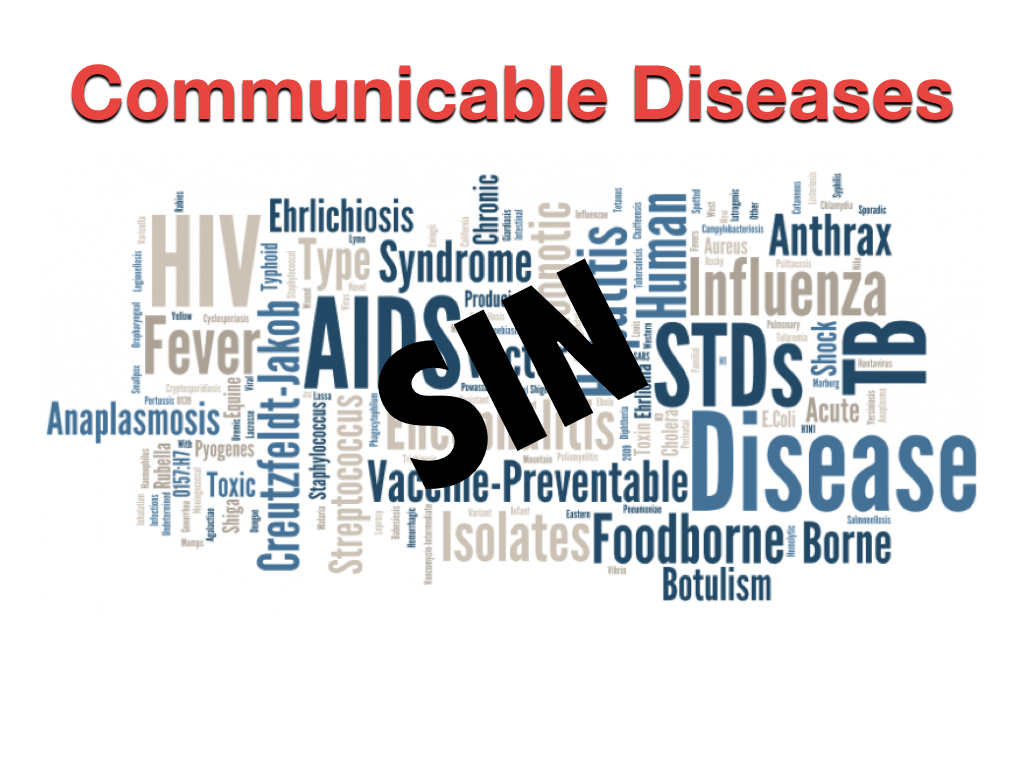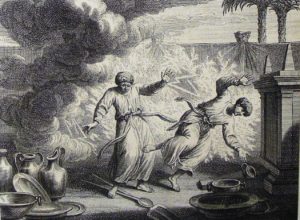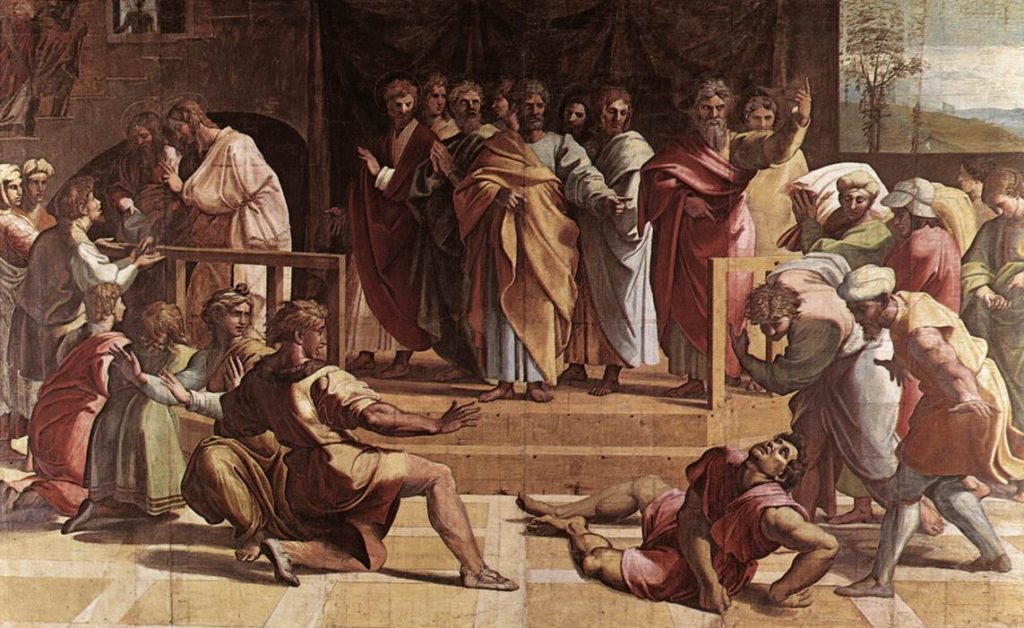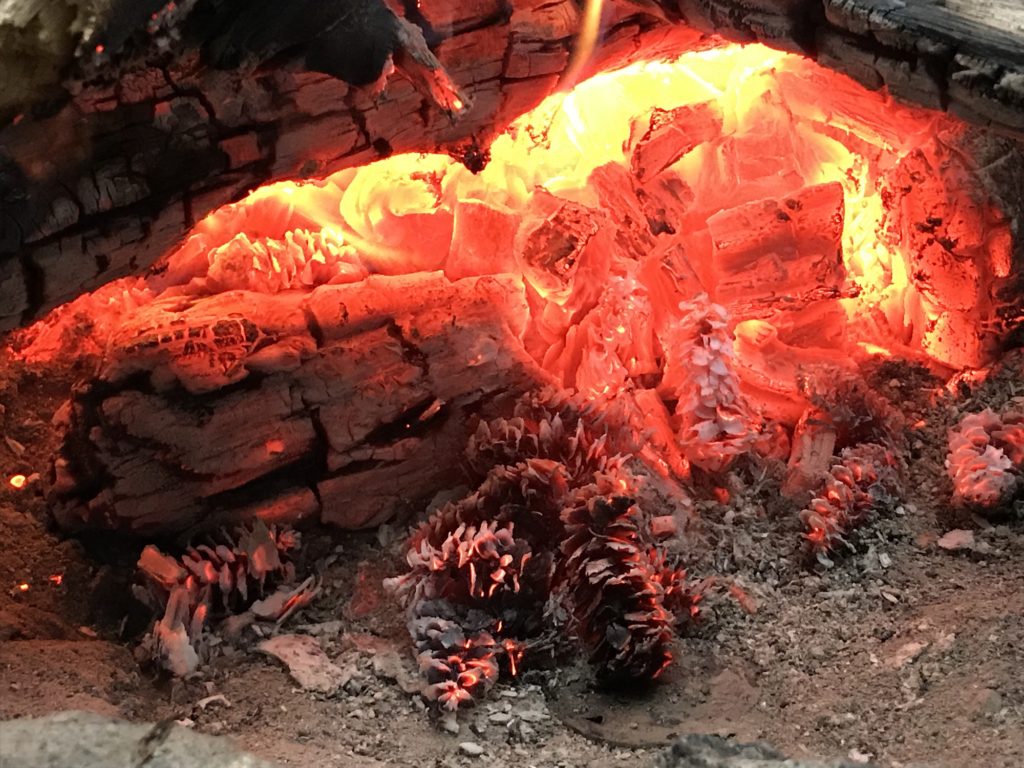In this time of viral epidemics whether they be as serious as we are being told they are or not, the fact remains that plagues and pestilences do occur and affect people’s lives in dramatic ways. This should be a time of reflection for all of YHVH’s people, a time to search our own lives, to evaluate our own spiritual walk before YHVH Elohim and our relationship with Yeshua our Messiah. Life is a divine gift, and good health, next to salvation, is one of the greatest gifts of all. The following piece that I wrote many years ago when considered against the backdrop of the current Coronavirus/COVID-19 virus will hopefully give us some food for thought as we compare the spiritual virus of sin with the physical virus that is raging all around us. Please take a moment to pause and reflect on this…selah! — Natan
How Leviticus chapters 12, 13 and 14 relate to you
These several chapters are some of the most difficult ones in the Torah for us to wrap our brains around spiritually. What is the relevance of these arcane laws of ritual impurity and “leprosy” to modern people? With a little thought, we can see that there are some deep and relevant spiritual truths contained in these biblical passages!
As Matthew Henry points out in his classic gospel-oriented commentary on the Bible, after the laws concerning clean and unclean foods in Leviticus 11 come the laws concerning clean and unclean persons. As germs are contagions causing physical disease, so man is infected with the spiritual contagion of a sin nature that brings about spiritual disease ultimately leading to death. Henry explains that man imparts his depraved sin nature to his offspring at conception, which is why the woman needed to go through ritual cleansing after childbirth. Similarly, the Bible teaches us that the plague of leprosy (Heb. tsaraasreferring to a generic skin disease) was a judgment by Elohim against the sins of rebellion, greed and misuse of the tongue (e.g. Miriam, Gehazi and King Uzziah).
The spread of and cure for spiritual diseases is similar to those of physical diseases, as we’ll discuss below. First, however, let’s compare and contrast how physical germs are similar to spiritual sin “germs.”
What are germs?
With the help of several modern health care professionals, we first need to learn about germs.
“Our bodies are pretty amazing. Day after day, they work hard—digesting food, pumping blood and oxygen, sending signals from our brains and much more.
“But there is a group of tiny invaders that can make our bodies sick—they’re called germs.
“Some kids may think that germs are bugs or cooties or other gross stuff. Actually, germsare tiny organisms, or living things, that can cause disease. Germs are so small and sneaky that they creep into our bodies without being noticed. In fact, germs are so tiny that you need to use a microscope to see them. When they get in our bodies, we don’t know what hit us until we have symptoms that say we’ve been attacked!” (from: kidshealth.org/en/kids/germs.html).
Where do germs live?
“Germs have favorite places to live, preferred ways to travel, and if they are harmful, have their own unique ways of causing disease. Germs can live in or on dirt, water, countertops, our skin, our intestines, and in many other places around us. Some germs can survive on their own while others prefer living in people or animals. Some germs live only in hot areas of the world while others live only in cold areas. When germs find a place that is good for them, they multiply and set up a home for themselves” (from: www.sfcdcp.org/germs.html).
How do germs spread diseases?
“Germs spread in different ways. To catch an infectious disease, you first need to be exposed to a harmful germ. Then it needs to get on or into your body and act in its unique ways to cause disease. Our bodies are good at fighting infections; not everybody who is exposed to germs will get sick, but some will. Here are the most common ways to be exposed:
“Touching. Some germs live in body fluids like mucus, pus, and stool. Even the invisible drops released when people talk, cough, or sneeze can carry germs. Touching a contaminated surface or object, then touching your eyes, nose, mouth, a cut, or other opening in the body, can lead to an infectious disease.
“Eating or drinking. Some germs exist in food and untreated water. Unwashed fruits and vegetables, and foods not properly cooked or kept at the right temperature, may carry harmful germs.
“Breathing. Some germs spread through the air. When someone coughs, sneezes, or talks they can release germs. When harmful germs are inhaled, they can cause illness.
“Getting bitten. Animals can carry and spread infectious diseases to people. Bites from wild animals, pets, or even a small animal like a bat or insect can cause illness. Even if the animal doesn’t look sick, it may carry harmful germs” (from: www.sfcdcp.org/germs.html).
With very little imagination, we can see how sin, like germs, are always trying to attack us spiritually and infect us with sinful thoughts, words and deeds. This is one reason that the Bible likens sin to yeast. As one rotten apple can cause a whole box of apples to rot, so it only takes miniscule amount yeast to “infect” a lump of bread dough thus causing it to rise.
How can we prevent the spread of unhealthy germs and thus diseases?
Continue reading








